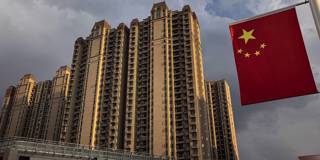China's Real-Estate Balancing Act
China’s government has emphasized that policies to address financial vulnerabilities and structural problems should not impede economic growth. But, when it comes to the real-estate sector, that will not be an easy balance to strike – and getting it wrong could have economy-wide repercussions.

BEIJING – Despite strong global economic headwinds, not least from the COVID-19 pandemic, China managed to achieve 8.1% GDP growth last year, its highest rate in a decade. With that, China met the International Monetary Fund’s expectations and far surpassed its own government’s 6% target.